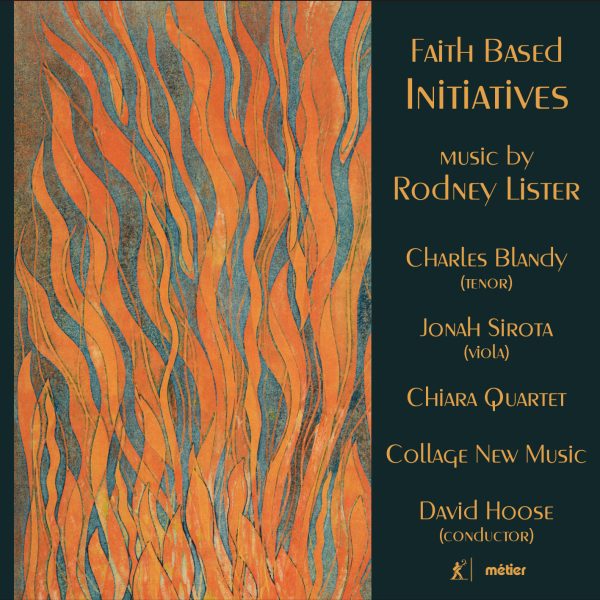The Chronicle Review Corner
This came some time ago but Easter seems a good time to pretend we held it back on purpose.
If the Mold album below {Divine Art DDA 25238} is traditional, quiet and peaceful, this is much more modern and a little less relaxing in places.The works vary from vocal to string quartet but share a theme, that of grief, either personal or for the plight of people blighted by war.
The title piece opens, and the open moments are tranquil but soon give way to an edgier sound, violins plucked to give tension over a mournful melody of sorts, although it smooths out later to a slightly uneasy calm. The sleeve notes say it’s based on a hymn (Come Thou Font of Every Blessing) and Lister wanted to write a piece that would be played (so reasonably accessible).
Complicated Grief is next and takes “tacky” folk tunes and deconstructs them to sparse violin, with louder moments on the violin that might normally signal a dance and a caller shouting “do-is-do!”.
The title track is the longest and most modern. It was inspired by a variety of sources: the US Civil War, the Gulf War and poetry including In Flanders Fields. (One of the poems included in Friendly Fire, For the Union Dead by Robert Lowell, contains a bad racial word unacceptable today except in rap songs, which prompts a sleeve warning).
Ode To The Confederate Dead opens with tenor Charles Blandy singing over a discordant sound led by horns, reminiscent of the battle the dead fell in, a sound that continues for much of the piece, the following tracks being The Fury of Aerial Bombardment, a poem that questions why God lets us do it, other than His indifference, and Women, Children, Babies, Cats and Cows, a comment on a US atrocity in Vietnam.
The March Into Virginia includes excerpts from famous civil war tunes; The Death of the Ball Turret Gunner is short and bleak (“When I died they washed me out of the turret with a hose”.) It’s unsettling and a little hard to listen to in places but it is those best of all things, interesting, and it’s got a moreish nature to it.
@divineartrecordingsgroup
A First Inversion Company
Registered Office:
176-178 Pontefract Road, Cudworth, Barnsley S72 8BE
+44 1226 596703
Fort Worth, TX 76110
+1.682.233.4978












